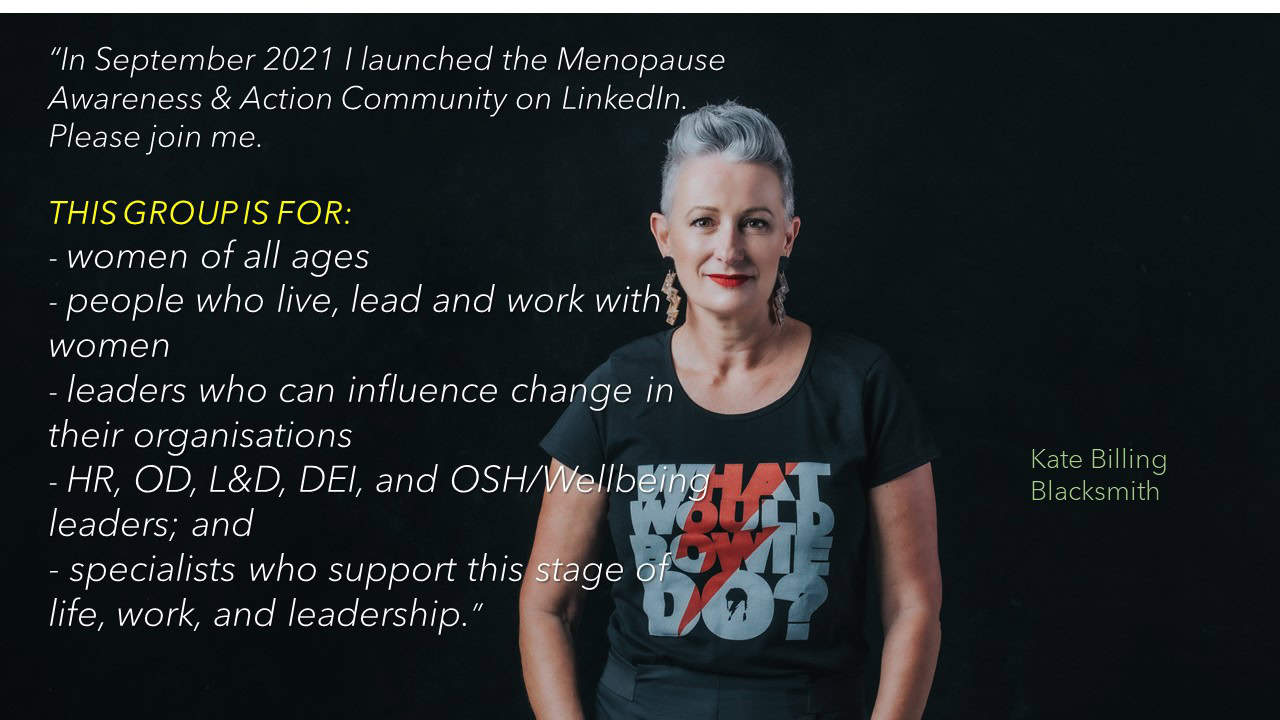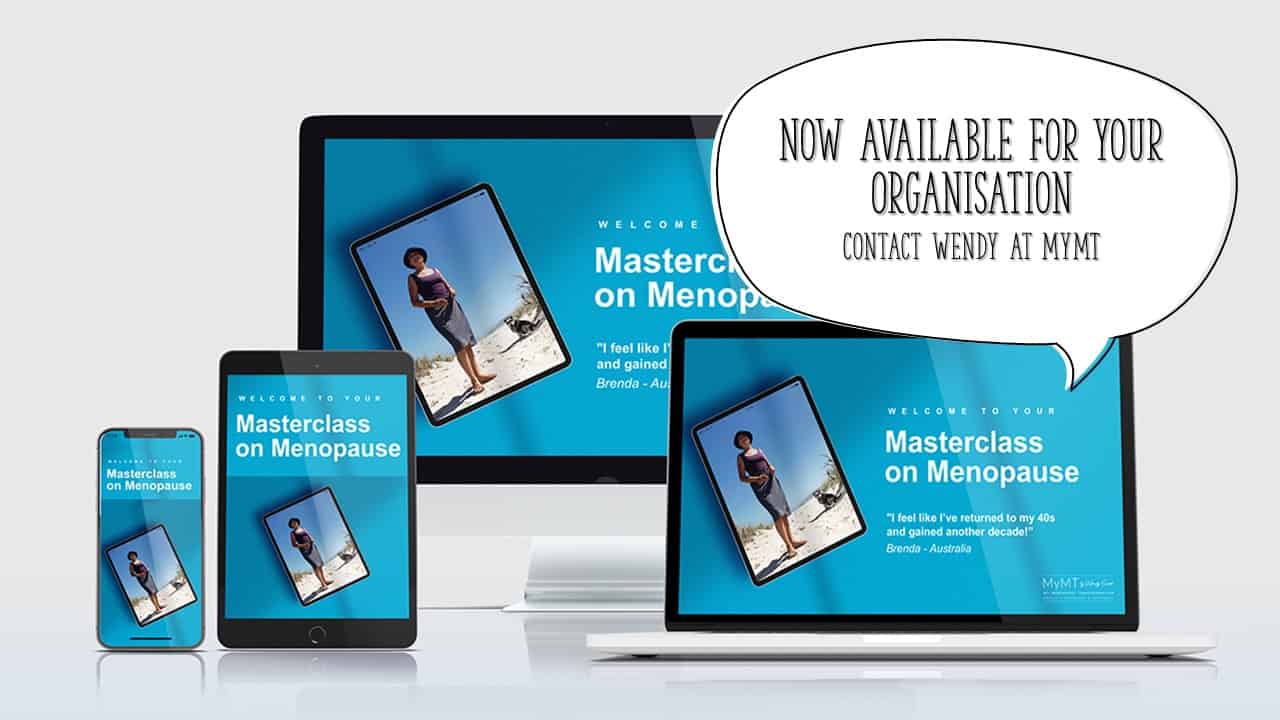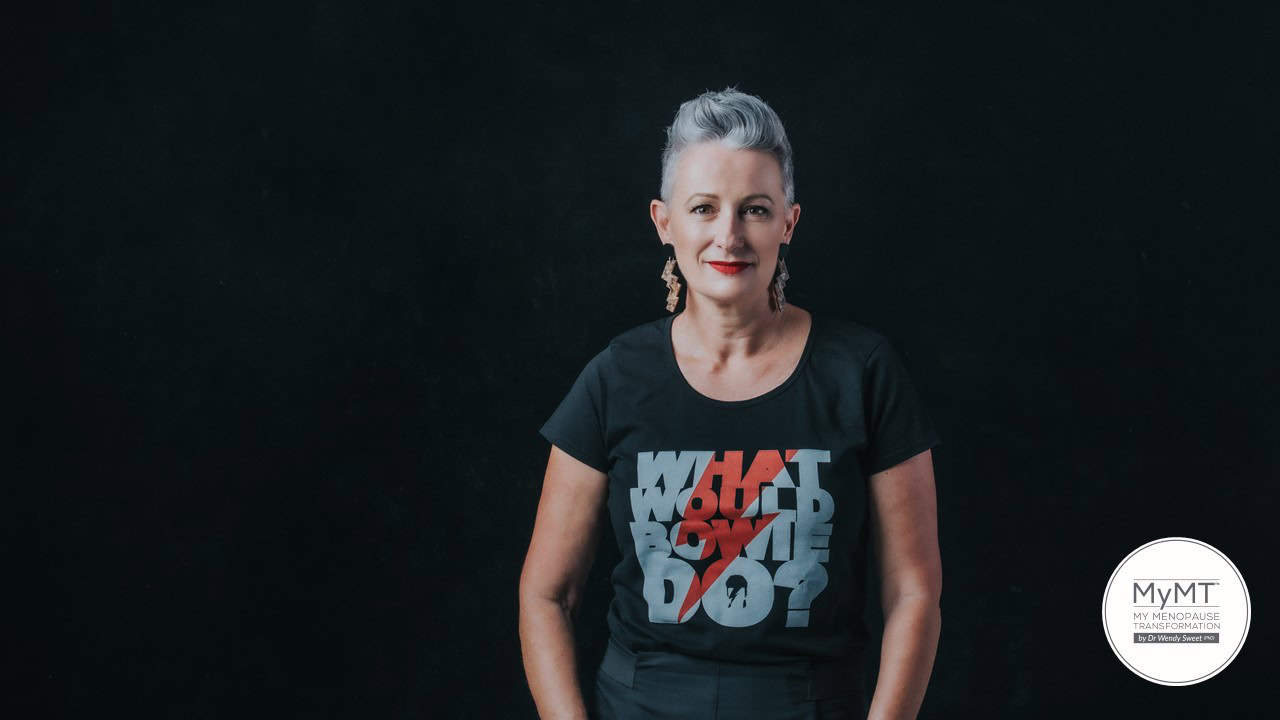Menopausal women are the fastest-growing workforce demographic on the planet, with 25% of women in the world estimated to be in this life stage by 2030. Which means that Kate Billing, Founder & Creative Director of Blacksmith, a specialist human-centred leadership development practice, still has a lot of work to do.
As she says, “Combine this with the highest-ever levels of workforce participation by mid-life women, the continued drive to see greater numbers of women in leadership roles, and a stronger than ever commitment to diversity, inclusion, and wellbeing and we have a perfect storm of conditions for creating change in our workplaces around perimenopause and menopause.”
After completing the MyMT™ Circuit Breaker programme and having so many of her own ‘aha’ moments, Kate invited me to chat to her yesterday as part of her fabulous ‘Pause For Thought’ initiative. She has developed this to enrich, elevate and amplify the conversation about perimenopause and menopause as a normal, healthy part of life, work and leadership.
It was a privilege to be there with Kate and all those attending. We covered such a lot of information that I thought you might be interested to listen as well.
So, if you would like to listen to the conversation and the questions and answers, then scroll down to follow the link below. As we get towards the end of a stressful, busy year, it’s great to see Kate implementing her ‘Pause for Thought‘ series for women in the workplace.
And whilst we often refer to workplaces as somewhere you go for paid work, I know myself, that women are far busier than that, and there’s a lot of unpaid work that goes on in our lives. Hence, whichever ‘workplace’ you are in, I share some insights with you and answers some questions from the attendee’s in the interview.
I’ve written numerous blogs about menopause in the workplace, simply because menopause arrives at a time when many women are at the peak of their careers. Hence, like Kate, I believe that it’s time for workplaces to put it on their agenda and normalise it – a challenge also made in a recent Harvard Business Review, “We are learning to discuss race, gender, and generational differences more openly at work and we need to put menopause on the agenda too”. (Patterson, 2020).
It’s been over a decade since researchers explored the experiences of professional women and menopause as part of surveys undertaken with women in the National Association of Female Executives (USA). The majority of menopausal women surveyed experienced both physical and/or emotional symptoms. For many women, symptoms related to menopause significantly affect their daily personal, professional, and social lives. (Simon & Reape, 2009)
Australian findings aren’t much different. As Jack, et al. (2016) remind us, large numbers of women transition through menopause whilst in paid employment and symptoms associated with menopause may cause difficulties for working women, especially if untreated, yet employers are practically silent on this potentially costly issue. And as Kate reiterates, the research supports this.
I hope you can make time this week to have a listen and learn, because as Kate mentions, when it comes to women and their menopause symptoms, “There is too much suffering in silence in the workplace.”
If you would like to listen to the conversation and the questions and answers, then follow the link below which will take you to Kate’s community and our chat.
PAUSE FOR THOUGHT WITH DR WENDY SWEET

As part of their global menopause awareness programme rollout, Vodafone commissioned research in March 2021 that revealed 44% percent of women who had menopause symptoms felt too embarrassed to ask for support in the workplace.
Research conducted in the UK in 2019 by the CIPD (Chartered Institute of Personnel & Development) and international healthcare company Bupa, nearly 1,000,000 women left their jobs due to menopause symptoms that year in the UK alone. That’s tough.
“Women experiencing perimenopause and menopause need opportunities to learn about what’s happening to them” says Kate. “Women also need workplace cultures that facilitate openness and support around the experience. Managers, team members, colleagues and partners need development and support in how to have compassionate and informed conversations.
Currently, too many of us know too little about perimenopause and menopause:
– There is too much mystery, judgement, and shame around the topic
– There isn’t enough openness in relationships to talk about the experience
– There isn’t enough information out there to inform those conversations if they do happen; and
– There is too much suffering in silence.
As INDIVIDUALS, we need to take more responsibility for educating ourselves – be that about our own experience (current or future) OR that of the women we live and work with.
As ORGANISATIONS, we need to recognise the significance of this experience for women at work and create cultures, policies, practices and development experiences that better support them.
Recently, Kate has launched the Menopause Awareness & Action Community on LinkedIn. If you are interested then you can connect with Kate on Linked In and get in on the conversation.
THE GROUP IS FOR:
– women of all ages
– people who live, lead and work with women
– leaders who can influence change in their organisations
– HR, OD, L&D, DEI, and OSH/Wellbeing leaders; and
– specialists who support this stage of life, work, and leadership.
“If you’d like to be part of our supportive community of Fire Starters” mentions Kate, “each committed to their personal development in this space AND to changing the conversation in their workplaces and leadership communities, then JOIN US HERE. Changing the world is a team sport. Come play!”
Kate Billing, Blacksmith/ kate@blacksmith.co.nz
PS: Don’t forget that my Masterclass on Menopause is also available for organisations. Please email wendy@mymenopausetransformation.com

References:
Calister, P. (2014). The employment of older New Zealand women. A paper prepared for the National Advisory Council on the Employment of Women, Ministry of Women’s Affairs, Wellington, New Zealand.
Jack, G., Riach, K., Bariola, E., Pitts, M., Schapper, J. & Sarrel, P. (2016). Menopause in the workplace: What employers should be doing. Maturitas, 85, 88-95.
Lachman, M. (2004). Development in midlife. Annu Rev Psychol. 55:305-31. doi: 10.1146/annurev.psych.55.090902.141521. PMID: 14744218.
Patterson, J. (2020). It’s time to start talking about menopause at work. Harvard Business Review. Sourced from: https://hbr.org/2020/02/its-time-to-start-talking-about-menopause-at-work
Simon J., Reape K. (2009). Understanding the menopausal experiences of professional women. Menopause. Jan-Feb;16(1):73-6. doi: 10.1097/gme.0b013e31817b614a. PMID: 18779760.


